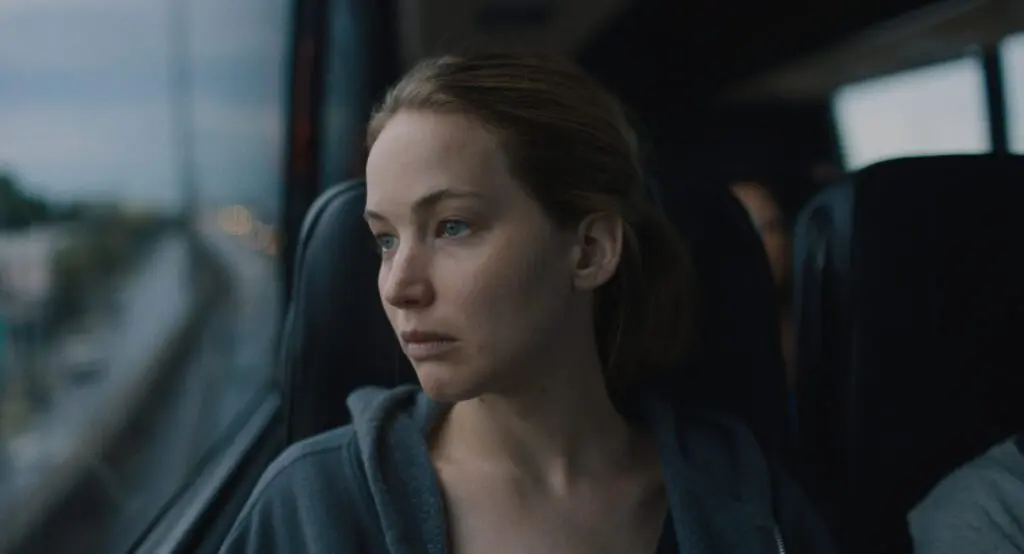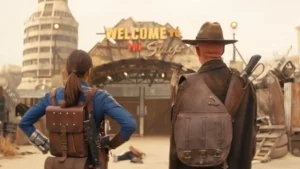Summary
Causeway is an observational character study that feels extraordinarily human.
There is something to be said about a movie that lets the story play out with great patience and restraint. One that does not pander to nor patronize its audience. That is what you have in Causeway. The Apple TV Plus film allows the viewer to be a fly on the wall that plays out as an engaging drama about the desperate need to make and maintain human connections.
The story follows a U.S. Soldier, Lynsey (Jennifer Lawrence), who is back home after experiencing a severe life-threatening injury in Afghanistan. During a convoy to help build a water system, the vehicles were attacked with improvised explosive devices (IEDs). She suffered a brain bleed and later woke up in a hospital in Germany. Lynsey is recovering from her physical injuries while suffering from mental health problems of her own. The symptoms of post-traumatic stress disorder (PTSD) are apparent. She has nightmares, depression, and anger as she is mending back to health. Frequently, she will wake up screaming for her home healthcare worker (The Humans‘ Jayne Houdyshell) as Lynsey struggles to reacclimate.
Even after returning to New Orleans to live with her mother (an outstanding Linda Emond), she hints at previous trauma before her military injuries. She says as much to her neurologist, (Stephen McKinley Henderson), who she is trying to convince to sign a waiver to re-enter her deployment. Why? Lindsey cannot stand being home. The emotional toll of suffering from post-traumatic stress disorder (PTSD) is apparent. Along with the ruminating of suffering, childhood trauma perhaps outweighs her physical injuries.
Causeway is the freshman director debut for Lila Neugebauer, primarily known for her directorial work in theatre. Working from a script from Elizabeth Sanders, Luke Goebe, and Ottessa Moshfegh, she creates a minimalist view of military re-acclimation. Also, the unusual connections we make with people where there is an unspoken link between them. That is where Brian Tyree Henry comes in, and it is his best performance to date, a man with a traumatic past that she meets by chance when her truck breaks down.
There is a sort of relaxed chemistry between the two, one where there does not have to be a sexual component but enjoying someone’s company is where you learn to embrace the silences. The audience is rewarded with their backstories coming up patiently in conversation instead of falling into a writer’s trap of vomiting twenty years of pain within the first five minutes of meeting one another.
Causeway has the kind of script and supporting performances that many fail to appreciate. The way you gain an understanding of why Lynsey is the way she is by simply taking in her relatives. You can easily understand what the soldier is hinting at about trauma redeployment. The way Emond communicates, without words, her issues with alcoholism and the men she would bring home as a single mother. You feel empathy when Lynsey has a prison visit with her brother in sign language. Or the way James alludes to a lonely existence but will not delve into why. And when there is an overt revelation for the terrific Henry, it is delivered with such anger and regret that you cannot help but feel pity, anger, or both.
Some may complain that Neugebauer’s debut film never goes deeper than the pools the main character skims. However, this is because Causeway is a patient drama that feels like a Cinéma Vérité. That is because it is an observational character study that feels extraordinarily human. That is a credit to Lawrence, who gives her best performance since Silver Lining’s Playbook and is possibly the most grounded.
Read More: Causeway Ending Explained




